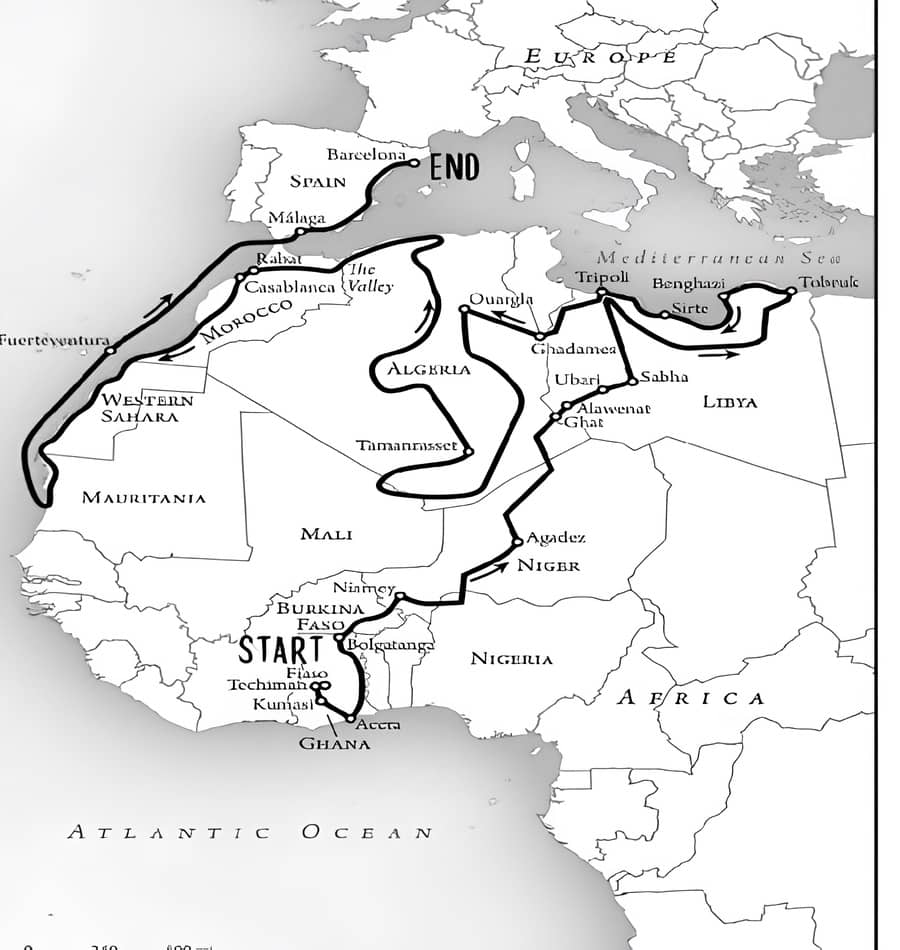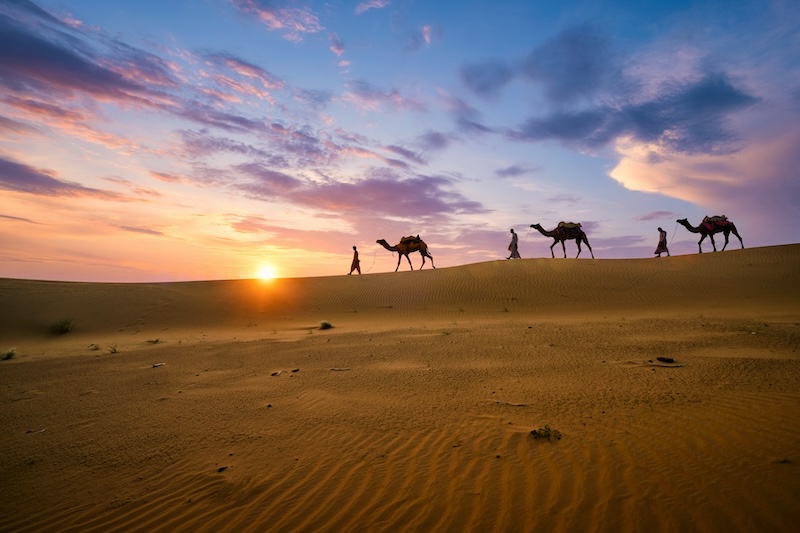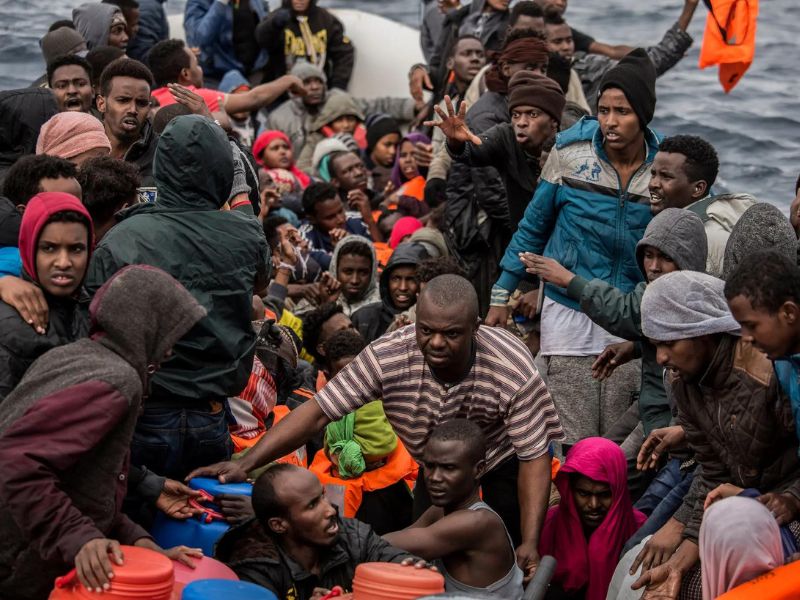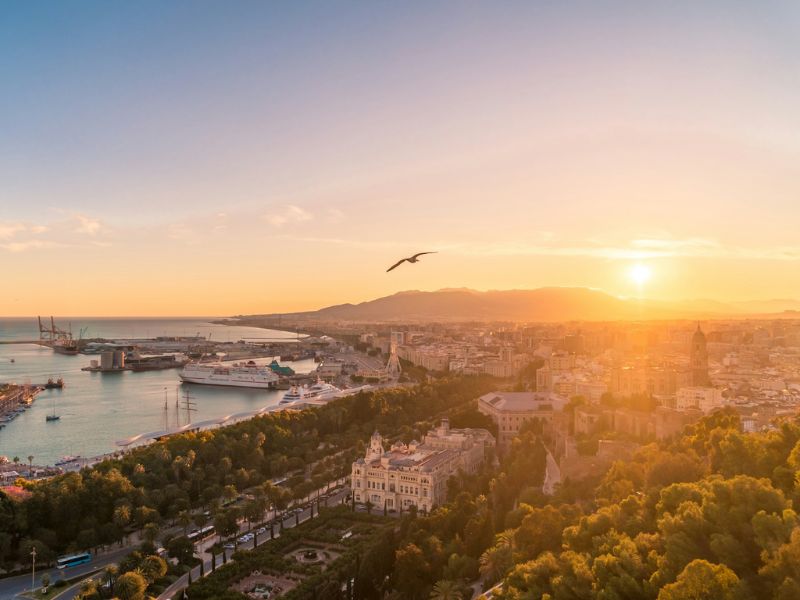A Harrowing Journey
Ousman Umar starts his story in a small village in Ghana. At a young age, he decides to embark on a perilous journey to Europe, driven by the hope of finding opportunities that are scarce in his homeland. His path takes him through Togo, Burkina Faso, Niger, and into the unforgiving expanse of the Sahara Desert.
 *Image by PattyMacDoComma
*Image by PattyMacDoComma
The book vividly describes the extreme hardships he faces:
- Crossing the Sahara: Ousman endures scorching heat, scarcity of water, and the constant threat of death. The desert claims the lives of many who attempt to cross it, and his survival is nothing short of a miracle.
- Libya and Human Trafficking: In Libya, he confronts the brutal realities of human trafficking and modern-day slavery. He’s captured, imprisoned, and must navigate a world where human life is cheap.
- The Mediterranean Sea: The journey across the sea is fraught with danger. Overcrowded boats, lack of navigation, and the indifference of authorities make it one of the deadliest migration routes.
Understanding the Why

Reading about Ousman’s experiences made me consider the reasons why someone would risk everything to reach a new land. In South America, many of us face economic instability, violence, and limited opportunities. While I didn’t confront the same life-threatening challenges as Ousman, I understand the urge to seek a place where one can build a future.
Growing up, I witnessed how a lack of opportunities can stifle dreams and aspirations. The desire for a better life isn’t just about personal advancement; it’s about providing for family, contributing to society, and fulfilling one’s potential. Ousman’s story highlights this universal quest for improvement—a theme that resonates with many across different continents.
Resilience and Hope

What stands out in Ousman’s story is his incredible resilience. Despite enduring unimaginable horrors—crossing the scorching Sahara Desert, surviving human trafficking in Libya, and braving the treacherous Mediterranean Sea—he holds onto hope. His journey is not just a physical passage but a testament to the strength of the human spirit.
Reading about his trials, I was humbled by his unwavering determination. It made me reflect on my own challenges, which seem minor in comparison. Ousman’s ability to maintain hope in the face of such adversity is inspiring. It serves as a powerful reminder that resilience and optimism are vital tools in overcoming obstacles, no matter how insurmountable they may seem.
Finding a New Home

Eventually, Ousman reaches Spain, where he begins the difficult process of rebuilding his life. He learns the language, pursues education, and dedicates himself to helping others by founding an NGO to assist migrants. His story doesn’t end with just reaching Europe; it’s about the continuous effort to integrate and contribute to his new community.
This part of his journey particularly resonated with me. When I moved to Canada, I faced my own set of challenges—adapting to a new culture, overcoming language barriers, and finding my place in a different society. Like Ousman, I discovered that building a new life requires patience, perseverance, and a willingness to embrace change.
Final Thoughts
“North to Paradise” is more than just a memoir; it’s a powerful reminder of the lengths people will go to in search of a better life. Ousman’s story sheds light on the human side of migration, often overshadowed by statistics and political debates.
For anyone seeking to understand the complexities behind why people migrate, I highly recommend this book. It offers valuable insights into the struggles, hopes, and dreams that drive individuals to leave everything they’ve known.







